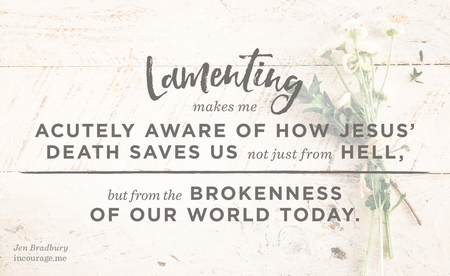
“We’re going to bury the Alleluias on Sunday,” my colleague told me.
Although I’d grown up in a church where Lent was a thing, I’d spent the previous five years working at a non-denominational church that didn’t observe it.
Needless to say, when my colleague announced we were going to “bury the Alleluias,” I had no idea what she was talking about.
I soon found out.
That Sunday, the last before Lent began, we handed out ribbons to everyone and encouraged them to wave them whenever the word Alleluia appeared in worship. Then, near the end of the service, we invited everyone to place their ribbons – i.e., their Alleluias – in a bag to “bury them”.
The practice was meant for children. Yet, as an adult, I found it meaningful, too.
For the duration of Lent, we eliminated the word Alleluia from our worship services. Because of the heightened awareness I’d gained from waving my ribbon every time we’d sung Alleluia the previous week, I noticed its absence in a way I never had in my church as a child.
I felt the gravity of the season.
I felt its somberness.
That year, for the first time, I appreciated Lent.
I mourned the things in my life that were broken: Relationships that were fading, people who had died, job losses, and an assortment of other transitions.
I lamented all that is broken in our world, including violence, poverty, and war.
In Lent, it suddenly felt as though these things – the things that overwhelm us but don’t always feel welcome in church – belonged there. It felt like church wasn’t just a place that glossed over people’s problems but instead acknowledged them.
Lament, it turns out, is a holy act.